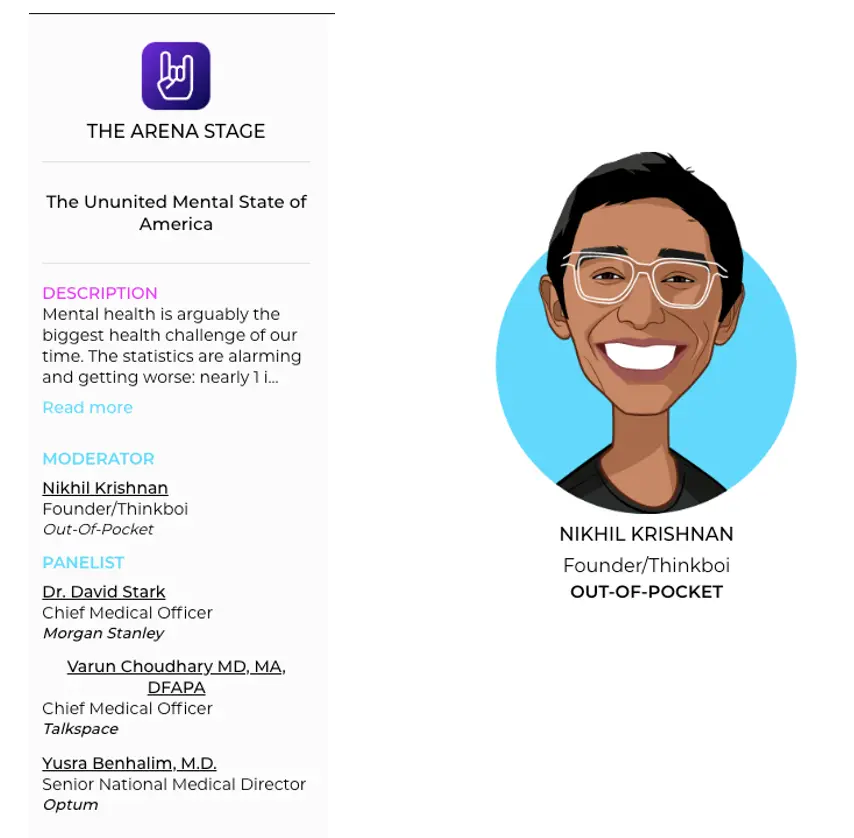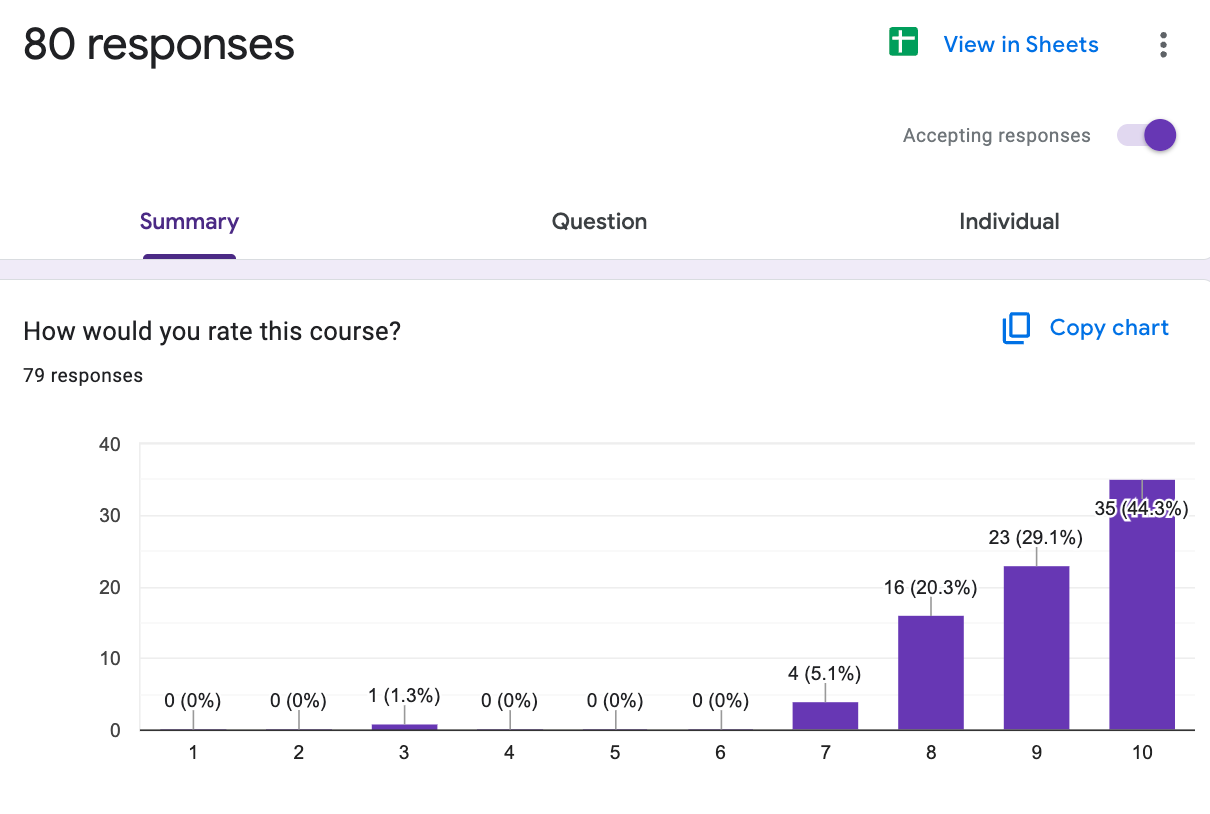Should Physicians Create Lifestyle Plans?
Get Out-Of-Pocket in your email
Looking to hire the best talent in healthcare? Check out the OOP Talent Collective - where vetted candidates are looking for their next gig. Learn more here or check it out yourself.
 Hire from the Out-Of-Pocket talent collective
Hire from the Out-Of-Pocket talent collectiveIntro to Revenue Cycle Management: Fundamentals for Digital Health

Network Effects: Interoperability 101
.gif)
Featured Jobs
Finance Associate - Spark Advisors
- Spark Advisors helps seniors enroll in Medicare and understand their benefits by monitoring coverage, figuring out the right benefits, and deal with insurance issues. They're hiring a finance associate.
- firsthand is building technology and services to dramatically change the lives of those with serious mental illness who have fallen through the gaps in the safety net. They are hiring a data engineer to build first of its kind infrastructure to empower their peer-led care team.
- J2 Health brings together best in class data and purpose built software to enable healthcare organizations to optimize provider network performance. They're hiring a data scientist.
Looking for a job in health tech? Check out the other awesome healthcare jobs on the job board + give your preferences to get alerted to new postings.
New Discussion Post
Today I have a new post and discussion topic.
To reiterate the rules:
I’ll pose a question and give my thoughts. In a future newsletter I’ll include ~3 of my favorite answers people reply with. I’ll possibly even make a meme related to your answer.
Good answers are ones with a novel viewpoint, data to back up their claim, personal stories, and avoid clearly shilling something.
Please reply to this email with your thoughts on the question and let me know if you want to have your name included or be anonymous. You have to actually be on the newsletter to submit a reply to it obviously.
Try to keep answers to two paragraphs or less please. This obviously doesn’t apply to me because it’s my newsletter and these are house rules.
Should physicians provide lifestyle counseling?
There was a Twitter thread going around last week that prompted an interesting discussion around whether it makes sense for physicians to be the ones doing lifestyle counseling. Since this was so polarizing and Twitter is a terrible place to have a nuanced discussion about this, I thought I’d pose it to you all here.
I want to caveat all opinions below with the obvious “I am not a doctor” asterisk. If you’re taking medical advice from a newsletter, you’re already too far gone anyway. I’d especially love to hear from coaches, physicians, and chronic disease patients.

It’s a little extreme to say they should NEVER give lifestyle recommendations, and the missing sentence here is physicians should CARE about lifestyle modifications and make sure it’s an emphasized part of any care plan. Even if they’re not the ones actually coming up with the plan.
But I think there’s something to this, and I think it’s a larger question around what the role of a physician is. I actually tend to agree that physicians should skew more to doing stuff that other levels of the clinical team can’t do - namely diagnosis, procedures, making unintelligible lecture slides, and quarterbacking a care plan within the given clinical context. There’s already so much to learn in just those buckets alone, and they’re constantly growing.
At the same time, we have to acknowledge that physicians have a certain authority with most patients. Hearing from them that the lifestyle changes are necessary, the clinical context for why, and explanations of what happens if they DON’T adhere to those changes might be the wake up call a patient needs.
But the actual implementation, follow-up, and modifications should be handled by someone with more expertise within that specific area. Understanding the cultural context of those changes, understanding the internal motivations of a given patient that would make them more adherent, and figuring out the cadence and method of communication they respond best to is a completely different, non-clinical skill set. You can’t tell me to “eat better” once a year, I need to be told regularly to not eat Nyquil chicken because I am impressionable and have a cumulative 2 brain cells.

In many cases, having a coach from the same community as a patient can make a much bigger difference. There are some pretty interesting excerpts from this 2015 interview with the Iora CEO and how they implement coaches.

Someone that spends all of their time dedicated to figuring out how to best motivate patients to stick with lifestyle interventions will probably be much better at it than a physician who does it infrequently and sticks to standardized, impersonal protocols. Doctors are barely trained in this in med school or residency, and ironically have the worst lifestyles themselves during this time…

There does seem to be a growing number of lifestyle medicine fellowships + naturopathic MDs that have a much more specific focus on lifestyle interventions.
So much distrust in the medical system comes from patients not feeling heard, which is generally a function of doctors not having enough time to listen to each of them. Coaches, dietitians, etc. can be the more consistent touchpoint so patients DO feel heard and relay the relevant information up the clinical chain. That way, instead, physicians can spend more time doing what they love the most: charting (someone is going to punch me for this).
I thought this response was well-put.

Part of this seems to be billing related. In fee-for-service the optimization is to bill for the advice, not whether the counseling is actually efficient. You can bill for counseling on smoking cessation using CPT 99406/7, but it’s going to be the same whether or not you actually find the correct program that works for the patient. In capitation arrangements where teams are paid a lump sum to take care of a patient (e.g. Medicare advantage focused PCPs), coaches play a critical role in the lifestyle portion.
Another part of this seems to be cultural - a history of looking down on nutrition coaches, diet trends, etc.— even when sometimes justified.
I think the counters to my argument are:
- The longitudinal relationship with physicians is already eroding, and in a model where they only diagnose, prescribe, and modify care plans, it’s easy to see them bucketed into the “pill pusher” category and lose trust.
- For some doctors, a big part of the fulfillment comes from understanding the patient’s whole health, not just the diagnostic/treatment management portion. When physician burnout is at an all time high, do we want to strip out the parts that those physicians like? (Other than charting, obviously).
- Can physicians be good stewards of the care plan and diagnoses if they aren’t the ones also giving the lifestyle modifications? A clear example of this might be something like obesity management, where you’re trying to figure out the right combination of lifestyle changes and prescription drug use that works for the patient. But also, if there are areas where a physician knows it’ll be difficult for a patient to be compliant, they might choose a different care plan from the outset (but then need to depend on the coach's judgment, which might be different from their own). To add yet another layer, some insurers require the physician to try these lifestyle modification- based interventions before things like procedures, etc.
- Can a coach make the right judgment calls on when something requires more clinical intervention if they aren’t trained clinically? I think this becomes very disease-specific.
So in summary, I think physicians should be the ones to kickstart the conversation about lifestyle changes, but not the ones to actually create the implementation plan. That should be the territory of coaches, dietitians, etc. who can do a better job at that. If we want actually scalable care, we have to acknowledge that physicians just can’t do everything and shift some of their workload to other team members. Considering 1 out of every 4 people has somehow become a life coach as a side hustle in the last two years, there’s potentially an overabundance on the supply side that can help out.
–
A separate point is how this doctor was dragged on social media for having this opinion. Lots of the replies and quote tweets are about how docs like this are basically shills for pharma, don’t care about holistic healthcare, and should be avoided at all costs. I don’t think this doc is saying lifestyle modifications don’t matter, but that physicians shouldn’t be the ones to figure out what those specific changes should be. Clearly he phrased it in as inflammatory of a way as possible - maybe for engagement sake, which is also bad. But there have to be forums where we can have honest discussions about topics like this without people defaulting to the feel good answers, dunking to get clout, or using their email to sign up for the Church of Scientology (this happened to me once when I got dragged).
I think it’s easy to say things like “doctors should care about a patient’s whole health”, but the practical, on the ground reality makes this infeasible. We simply do not have enough doctors with enough time. If we don't figure out scalable care models, the people who will be most impacted are ones that can’t access care and likely need the most support for lifestyle modifications.

What’re your thoughts on the physician <> lifestyle recommendation discussion? I’m excited to hear from you all, I assume some peeps will flame me for this one. But please don’t be too mean, I have a fragile ego.]Thinkboi out,
Nikhil aka. "a lifestyle business"
Twitter: @nikillinit
Other posts: outofpocket.health/posts
Thanks To Morgan Cheatham and Afnan Tariq for looking at drafts of this
P.S. I'm gonna be moderating a panel at HLTH about different mental health topics. I've been going to HLTH since it started and it's always been fun with smart peeps. They're doing some interesting stuff with the open floor format this year. Come through.

{{sub-form}}
---
If you’re enjoying the newsletter, do me a solid and shoot this over to a friend or healthcare slack channel and tell them to sign up. The line between unemployment and founder of a startup is traction and whether your parents believe you have a job.
INTERLUDE - FEW COURSES STARTING VERY SOON!!
See All Courses →A reminder that there’s a few courses STARTING VERY SOON!!
LLMs in healthcare (starts 9/8) - We break down the basics of Large Language Models like chatGPT, talk about what they can and can’t do in healthcare, and go through some real-world examples + prototyping exercises.
Healthcare 101 (starts 9/22) - I’ll teach you and your team how healthcare works. How everyone makes money, the big laws to know, trends affecting payers/pharma/etc.

We’ll do group rates, custom workshops, etc. - email sales@outofpocket.health and we’ll send you details.
INTERLUDE - FEW COURSES STARTING VERY SOON!!
See All Courses →A reminder that there’s a few courses STARTING VERY SOON!! And it’s the final run for all of them (except healthcare 101).
LLMs in healthcare (starts 9/8) - We break down the basics of Large Language Models like chatGPT, talk about what they can and can’t do in healthcare, and go through some real-world examples + prototyping exercises.
Healthcare 101 (starts 9/22) - I’ll teach you and your team how healthcare works. How everyone makes money, the big laws to know, trends affecting payers/pharma/etc.
How to contract with Payers (starts 9/22) - We’ll teach you how to get in-network with payers, how to negotiate your rates, figure out your market, etc.
We’ll do group rates, custom workshops, etc. - email sales@outofpocket.health and we’ll send you details.
INTERLUDE - FEW COURSES STARTING VERY SOON!!
See All Courses →A reminder that there’s a few courses STARTING VERY SOON!! And it’s the final run for all of them (except healthcare 101).
LLMs in healthcare (starts 9/8) - We break down the basics of Large Language Models like chatGPT, talk about what they can and can’t do in healthcare, and go through some real-world examples + prototyping exercises.
Healthcare 101 (starts 9/22) - I’ll teach you and your team how healthcare works. How everyone makes money, the big laws to know, trends affecting payers/pharma/etc.
How to contract with Payers (starts 9/22) - We’ll teach you how to get in-network with payers, how to negotiate your rates, figure out your market, etc.
Selling to Health Systems (starts 10/6) - Hopefully this post explained the perils of selling point solutions to hospitals. We’ll teach you how to sell to hospitals the right way.
EHR Data 101 (starts 10/14) - Hands on, practical introduction to working with data from electronic health record (EHR) systems, analyzing it, speaking caringly to it, etc.
We’ll do group rates, custom workshops, etc. - email sales@outofpocket.health and we’ll send you details.
INTERLUDE - FEW COURSES STARTING VERY SOON!!
See All Courses →Our Healthcare 101 Learning Summit is in NY 1/29 - 1/30. If you or your team needs to get up to speed on healthcare quickly, you should come to this. We'll teach you everything you need to know about the different players in healthcare, how they make money, rules they need to abide by, etc.
Sign up closes on 1/21!!!
We’ll do group rates, custom workshops, etc. - email sales@outofpocket.health and we’ll send you details.

Interlude - Our 3 Events + LLMs in healthcare
See All Courses →We have 3 events this fall.
Data Camp sponsorships are already sold out! We have room for a handful of sponsors for our B2B Hackathon & for our OPS Conference both of which already have a full house of attendees.
If you want to connect with a packed, engaged healthcare audience, email sales@outofpocket.health for more details.







